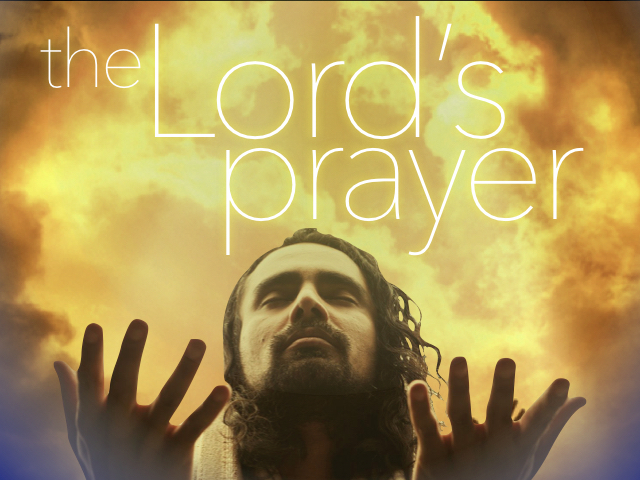
I’ll answer the question in the title right away: Yes. God listens to pagans when they pray.
And, well, duh. Of course he listens to them! He listens to everyone. He knows what everyone’s saying, what everyone’s thinking, and whether what we’re saying and what we’re thinking line up. (And when they aren’t, he knows we’re being hypocrites.)
He knows what our needs are; he hears us express ’em to him; he knows whether we’re sincere. True of everybody. Not just Christians.
Why’s this even a question? Because of course there are Christians who claim he doesn’t. Only we get access to the Almighty; only the true believers; only the elect.
And maybe Jews, depending on whether these Christians like Jews. If they do, they always manage to find an exception to the “no non-Christians, no unbelievers” rule. They’re God’s chosen people, so they’re kinda believers, so he has to listen to them, doesn’t he? Now, if these Christians are antisemites, either Jews are simply another type of pagan whom God refuses to hear, or (as claim these antisemites) God’s rejected and cursed them for not accepting Jesus, so of course he won’t hear them; he can’t abide them. Neither of these views are based on biblical, reasoned-out theology.
Really anyone who claims God rejects a people-group based on race or creed, is basing it on personal bias. It’s always bigotry and chauvanism. And you’ll notice how often antisemites likewise figure God rejects the prayers of Muslims, Mormons, Roman Catholics, anybody in the opposition party… basically anyone they hate. They claim it’s based on bible—
- Isaiah 1.15 KJV
- And when ye spread forth your hands, I will hide mine eyes from you: yea, when ye make many prayers, I will not hear: your hands are full of blood.
- Micah 3.4 KJV
- Then shall they cry unto the LORD, but he will not hear them: he will even hide his face from them at that time, as they have behaved themselves ill in their doings.
—and of course they’re not reading these verses in their proper context. Both Isaiah and Micah referred to unrepentant sinners. These were the prophets’ fellow Israelis—people whose ancestors were in covenant with God, who should therefore already be in conversation with God. But they didn’t care to follow his commands, didn’t believe he’d follow through on his warnings about willful sinners, and frankly weren’t gonna turn down some hot pagan sex. They chose sin. God warned ’em, and had his prophets warn ’em, there’d be consequences, and when those consequences came, he wasn’t gonna respond, in the very same way they weren’t responding to him.
No, this doesn’t sound very gracious of God. Which is why a number of Christians who like to preach grace, often like to skip these verses, pretend they don’t exist, or pretend they can’t mean what they clearly do. In the case of liberal theologians, they’ll even claim the prophets were wrong, and Jesus came to earth to rebuke and correct them. I won’t go there; I can’t, because there are plenty of New Testament verses which indicate Jesus agrees this is how his Father treats unrepentant sinners.
- Matthew 18.34-35 KWL
- 34And his lord was wroth, and delivered him to the tormentors, till he should pay all that was due unto him. 35So likewise shall my heavenly Father do also unto you, if ye from your hearts forgive not every one his brother their trespasses.
I believe the prophets were accurately relaying what God told ’em. God has infinite grace, and offers us infinite chances. But he also sets deadlines, and if we resist his grace all the way up to the deadline and beyond, he’s gotta follow through with his entirely fair judgments. When these people beg him to not follow through… what’s he gonna do, cave in like the parents of a spoiled child, let people go right back to doing evil, and allow evildoers to inherit his kingdom? They’d turn heaven into hell. Nope. He’s gotta ignore their shrieks of indignation, and stop the evil.
That’s what the verses mean when they state God sometimes won’t hear people. The rest of the time, of course he will.
- Psalm 145.18-19 KJV
- 18The LORD is nigh unto all them that call upon him, to all that call upon him in truth. 19He will fulfil the desire of them that fear him: he also will hear their cry, and will save them.
- Romans 10.12-13 KJV
- 12For there is no difference between the Jew and the Greek: for the same Lord over all is rich unto all that call upon him. 13For whosoever shall call upon the name of the Lord shall be saved. Jl 2.32
If God didn’t heed the prayers of pagans, it’d be impossible for pagans to call upon him to save them! Even the most hardcore cases of people who claim “God doesn’t hear pagans” have to admit this is true. It’s just they claim every other prayer these pagans make, every other thing they request, God ignores… ’cause he’s waiting for the sinner’s prayer, and only after he hears that will he move his hand.
But nope, God hears pagans when they pray. Even if their prayers are weird, ridiculous, warped, selfish, or evil. Same as our prayers, ’cause we can get just as weird, ridiculous, warped, selfish, and evil. God hears everyone.





